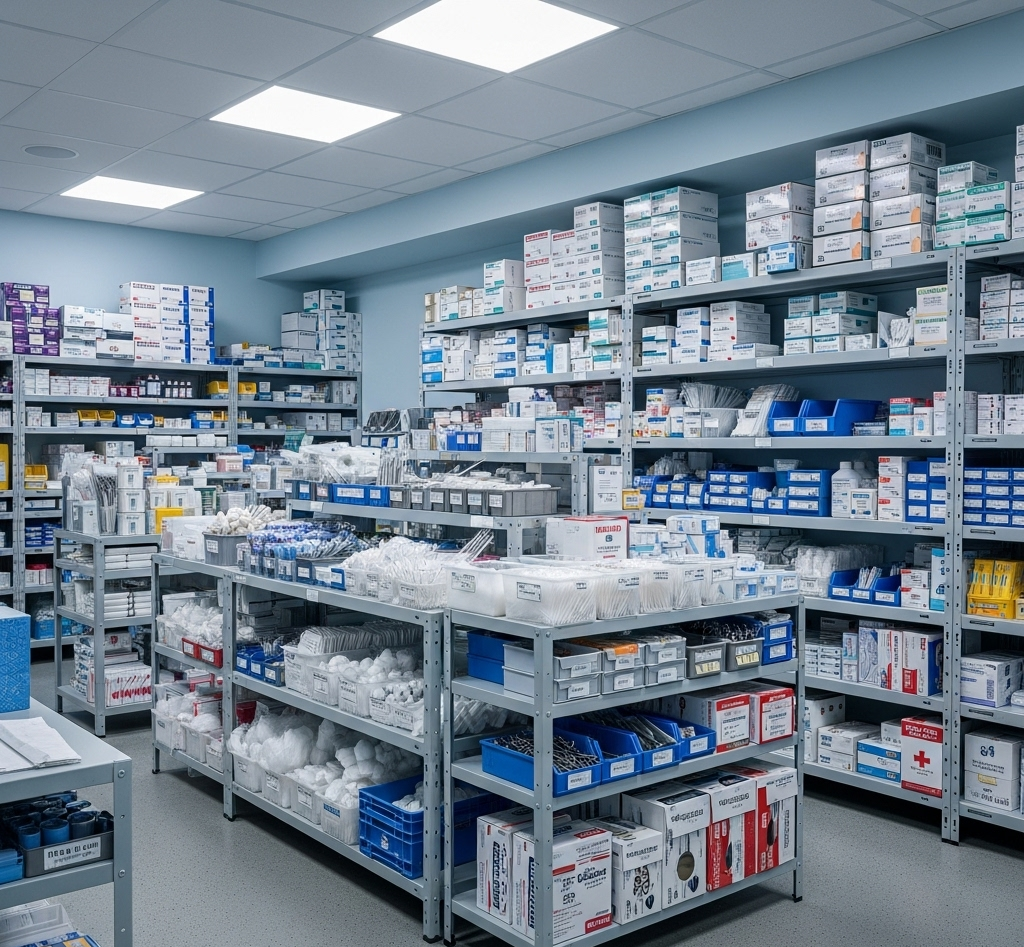
In the high-stakes world of hospital procurement, where timely access to quality medical supplies and equipment can directly impact patient care, building long-term supplier relationships is critical. These partnerships ensure a reliable supply chain, drive cost efficiencies, and foster innovation, all while maintaining the high standards required in healthcare. Unlike traditional procurement, hospital procurement demands trust, transparency, and collaboration to navigate complex regulatory requirements and fluctuating demand. This blog post explores the importance of long-term supplier relationships in hospital procurement and offers practical strategies for cultivating them.
Hospitals rely on a steady flow of supplies—ranging from personal protective equipment (PPE) and pharmaceuticals to advanced medical devices like ventilators and imaging systems. Strong supplier relationships provide several key benefits:
Reliability: Long-term partners are more likely to prioritize hospitals during supply shortages or crises, ensuring consistent access to critical items.
Cost Stability: Established relationships enable better negotiation of pricing and terms, reducing cost volatility over time.
Quality Assurance: Trusted suppliers understand a hospital’s stringent quality and compliance requirements, reducing the risk of defective or substandard products.
Innovation: Collaborative relationships encourage suppliers to share new technologies or tailor solutions to meet a hospital’s unique needs, such as customized surgical kits or advanced diagnostic tools.
Resilience: Long-term partnerships help hospitals navigate disruptions, such as global supply chain challenges or unexpected demand surges (e.g., during pandemics).
Hospital procurement faces unique challenges that make long-term relationships essential:
Regulatory Compliance: Suppliers must meet strict standards, such as FDA regulations or ISO certifications, which require consistent communication and trust.
Demand Variability: Patient needs fluctuate, and hospitals must balance inventory without overstocking or facing shortages.
Cost Pressures: Hospitals operate under tight budgets, requiring procurement teams to optimize costs without compromising quality.
Supply Chain Complexity: Medical supplies often come from global sources, introducing risks like delays, tariffs, or geopolitical disruptions.
To foster enduring partnerships, hospital procurement teams can adopt the following strategies:
Open and regular communication builds trust. Share forecasts, demand projections, and clinical requirements with suppliers to align expectations. For example, discussing anticipated needs for flu season vaccines or surgical supplies helps suppliers plan production and inventory. Regular meetings or digital platforms can facilitate ongoing dialogue.
Work with suppliers to establish mutual objectives, such as improving patient outcomes, reducing costs, or enhancing sustainability. For instance, partnering with a supplier to source eco-friendly disposable products can align with a hospital’s environmental goals while strengthening the relationship.
Support suppliers by providing feedback, sharing best practices, or co-developing solutions. For example, collaborating with a medical device supplier to design a customized IV pump that meets specific clinical needs can deepen the partnership and drive innovation.
Long-term relationships thrive on fair agreements. Instead of focusing solely on the lowest price, negotiate contracts that balance cost, quality, and reliability. Include clauses for scalability to accommodate demand spikes or provisions for priority delivery during emergencies.
Use procurement platforms like GHX or Jaggaer to streamline communication, track performance, and share data with suppliers. These tools can provide real-time insights into inventory levels, delivery schedules, and compliance status, fostering transparency and accountability.
Regularly assess suppliers based on key metrics, such as on-time delivery, product quality, and responsiveness. Share performance reviews to encourage improvement and recognize reliable partners. For instance, a supplier consistently delivering high-quality PPE on time can be prioritized for future contracts.
Beyond contracts, personal connections matter. Attend supplier site visits, industry conferences, or virtual meetings to build rapport. Understanding a supplier’s operations and challenges fosters empathy and strengthens collaboration.
Building long-term relationships isn’t without challenges. Common pitfalls include:
Over-Reliance on Single Suppliers: Diversify partnerships to mitigate risks while maintaining strong relationships with key suppliers.
Short-Term Cost Focus: Avoid prioritizing low prices over quality or reliability, as this can lead to costly disruptions or patient safety issues.
Lack of Alignment: Ensure suppliers understand the hospital’s mission and clinical needs to avoid misaligned priorities.
As healthcare evolves, long-term supplier relationships will become even more vital. Emerging trends like AI-driven demand forecasting, blockchain for supply chain transparency, and sustainable procurement practices will shape the future. For example, AI tools can predict supply needs based on patient data, while blockchain can ensure the authenticity of pharmaceuticals. Hospitals that invest in collaborative, tech-enabled relationships will be better positioned to navigate these changes.
Building long-term supplier relationships in hospital procurement is a strategic imperative that enhances reliability, drives cost efficiencies, and fosters innovation. By prioritizing transparency, aligning on shared goals, leveraging technology, and nurturing personal connections, procurement teams can create partnerships that withstand challenges and deliver value. In an industry where every decision impacts patient care, strong supplier relationships are not just a business strategy—they’re a lifeline.
© 2025 Lasso Supply Chain Software LLC
Get instant access to our report on the Top Procurement Trends of 2025 by filling out the form below.

Get instant access to our report on the Top Procurement Trends of 2025.